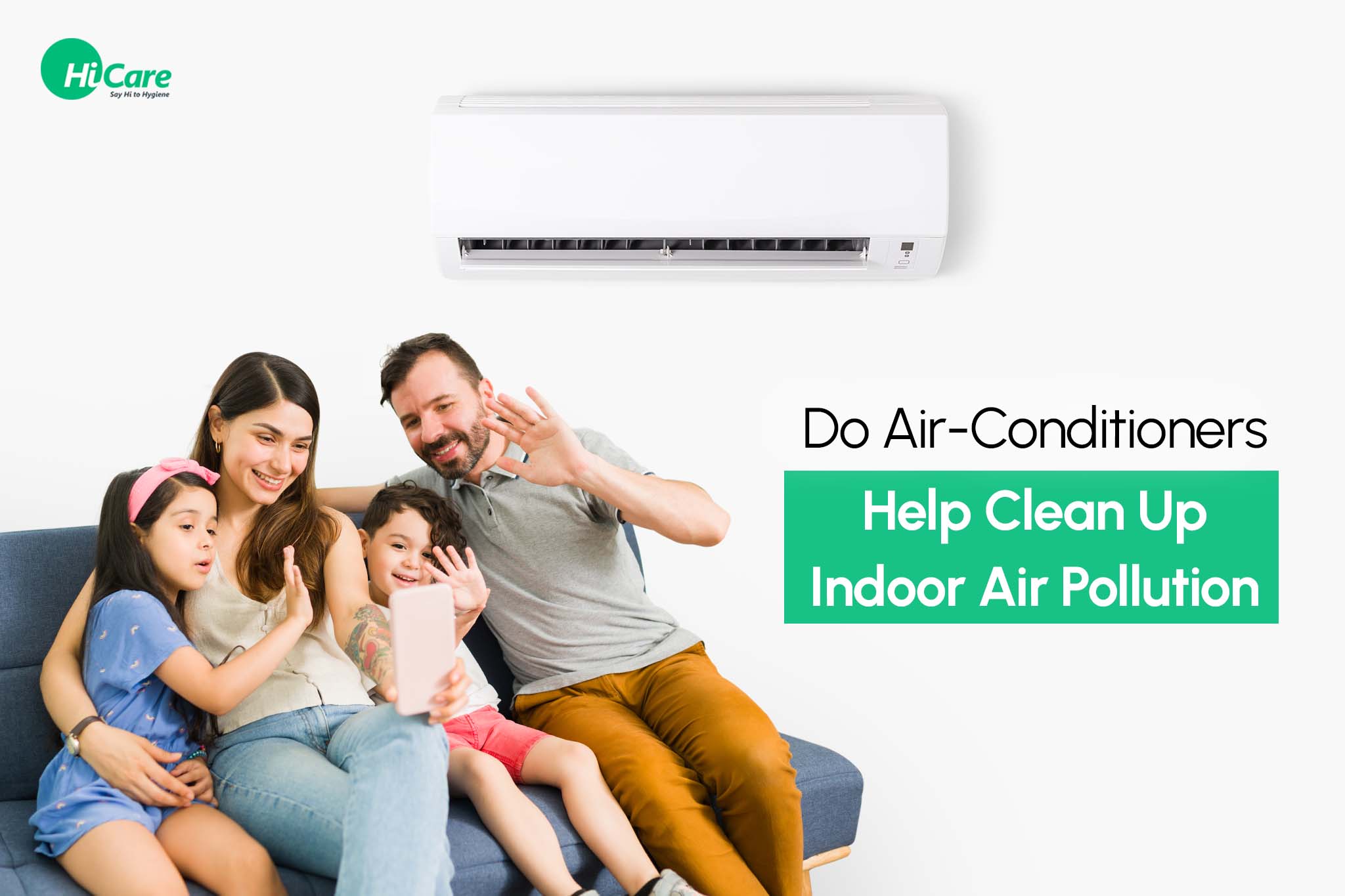Air conditioner systems might work excellent in keeping your home cool but fails to make your home pollutant-free. Here are few facts associated with health risks with air-conditioners.
The air quality indoor is ten times more polluted than outdoors. Air conditioner are misunderstood as one of the cleaning systems for indoor air pollution. The air-conditioning unit with air filters can provide clean air but not for a long time. The air filters in an air conditioner are inefficient in cleaning the small allergens from the indoor air. These harmful allergens then swirl around you while causing life-threatening respiratory diseases.
There are a number of allergens in the air that you breathe in your home. Outdoor allergens easily enter your home through window or door while few are present indoor. Mold allergen indoor can trigger respiratory problem due to nasal congestion, especially in children or senior citizen. The lead particle present in the paint also causes a chronic asthma attack and other health hazards. Thus, the indoor of your home can easily pollute your lungs. It may also cause severe respiratory problems. Hence air purifiers are essential.
Air-conditioning systems might work excellent in keeping your home cool. But it fails to make your home pollutant-free. There are air-conditioners with Hepa filter or air purifiers but contains a potential health risk.
Also Read: Pest Control Charges in India
6 Side Effects of Air Conditioners You Must Know
- An uncleaned air conditioner circulates more allergens in the air that you breathe indoor while adding to your illness.
- An air-conditioner accumulates mold as it contains moisture, if left uncleaned then it might trigger serious COPD (Chronic Obstructive Pulmonary Disorder) for your family members.
- Air-conditioners clean various indoor allergens, dust, and pollen from the air that you breathe. The cooling system pulls theses allergen inside and can again recirculate within no time.
- The refrigerant gas leak from your air-conditioner can lead to creating toxic vapours while poising the air that you breathe indoor.
- An air-borne disease such as Legionairre’s disease causes fatal infectious disease. This produces high fever and pneumonia. Air-conditioners are associated to spread such infectious diseases.
- The PM 2.5 is smaller particulate matters that go unnoticed by naked eyes. The air filters in an air-conditioner are inefficient to clean these smallest matters from the indoor air. This results in chronic asthma attacks, bronchitis and other breathing problems.
Conclusion
Therefore, it is always safe and advisable to invest in an air purifier. It helps to clean the indoor air pollutants as well. As it deeply eradicates the dangerous pollutants from the air that you breathe indoor. Air purifiers also have an added benefit of reducing the health risks associated with air-conditioners. Get an efficient and superior air purifier for your home or apartment to stay in the pink of your health.
HiCare brings to India, the best in class HEPA Silent Air Filtration System with Swedish giant ‘Blueair Purifier’. The air purifiers use revolutionary HEPA Air Purification technology to make indoor air pollutant free.We hand-pick all our air purifiers to best protect you and your family’s health. Don’t breathe polluted air indoor. Get a HiCare Air purifier and breathe pure air as nature intended. Speak to us to know how to invest in a quality and efficient air purification system to breathe easy.
After all, a pest free home is a healthy home!
Frequently Asked Questions(FAQs):
1. Does AC reduce indoor pollution?
Air conditioners (ACs) alone are not specifically designed to reduce indoor pollution. While they can help by filtering out some airborne particles, their primary function is to control temperature and humidity. To effectively reduce indoor pollution, you should consider using air purifiers, proper ventilation, and maintaining a clean living environment.
2. Do air conditioners improve indoor air quality?
Air conditioners can help maintain indoor air quality to some extent by filtering out larger particles such as dust, pollen, and pet dander. However, they may not be as effective as dedicated air purifiers at removing finer particles and pollutants. Regular maintenance of AC filters can contribute to improved air quality.
3. Do air conditioners help purify air?
Air conditioners have limited air purification capabilities. They typically use filters to trap larger particles, but they may not effectively remove volatile organic compounds (VOCs), odors, or microscopic pollutants. For thorough air purification, consider using specialized air purifiers with HEPA or other advanced filtration systems.
4. How can air conditioners reduce pollution?
Air conditioners can indirectly contribute to pollution reduction by helping to control indoor humidity levels. High humidity can promote mold and mildew growth, which can release pollutants into the air. By maintaining proper humidity levels, ACs can help prevent the growth of these pollutants.
5. Does AC purify smoke?
Air conditioners may filter out some components of smoke, such as larger particles and visible particulate matter. However, they are not designed to completely purify smoke or remove all harmful substances present in it. To effectively deal with smoke pollution, it's advisable to use air purifiers equipped with HEPA or activated carbon filters and to ensure proper ventilation.





